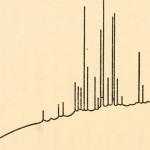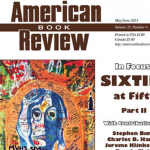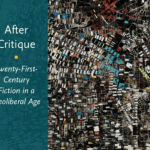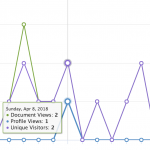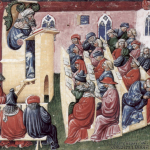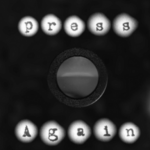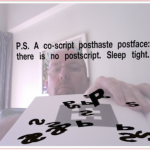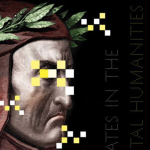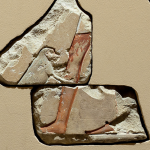Towards Buen Vivir
Robert LestónIn this review of The Power at the End of the Economy, Lestón delineates the theoretical apparatus of Massumi's book and its possible implications.
The Economics of Book Reviews
Jeffrey Di LeoIn a review of the contemporary publishing marketplace in the U.S. and the many definitions of "corporate fiction," Di Leo, editor of the American Book Review, offers some insights into the new economics of digital publishing and how ABR's recent decision to partner with ProjectMuse ended the "online poaching" of the magazine's content.
An Ontological Turn
Kieran SmithIn this review of Mitchum Huehls’ After Critique, Smith situates Huehls' “ontological approach” to the study of contemporary literature as arising from and standing in opposition to the "zombie plague" of neoliberalism.
A Digital Publishing Model for Publication by Writers (for Writers)
Scott Rettberg, Joseph TabbiHow might literary databases be seen as alternatives to the commodification of academic scholarship in for profit, subscriber platforms? Scott Rettberg and Joseph Tabbi discuss issues related to instrumentality, the global marketplace, and the digital humanities.
Academia.“edu”
Johannah RodgersInvestigating the question of whether academics should be concerned that Academia.edu is not an educational institution, Johannah Rodgers finds that the answers depend on your definition of “education” and which parties you ask.
Ghostbusters 2.0
Ralph ClareIf the 1984 Ghostbusters film can be read as an early foreshadowing of the neoliberal transformation of the United States of America, how might the film’s 2016 sequel be interpreted? Ralph Clare reviews the new film in the context of his reading of the original in his 2014 book Fictions, Inc.
Love Your Corporation
Henry S. TurnerAnalyzing the long and complex history of the term corporation, Turner explores the possibility that the term's roots in the universitas might serve as a basis for a re-translation and re-valuation of the corporate concept and establish a ground, both discursive and practical, for a reassessment of the “political” as a process of imaginative transformation and collective action.
Back to the Book: Tempest and Funkhouser’s Retro Translations
Jeneen NajiJeneen Naji describes Chris Funkhouser’s Press Again and Sonny Rae Tempest’s Famicommunist Poetics as examples of “the UnderAcademy style” begun by Talan Memmott. At the same time, within the context of post-digital publication, Naji explores concepts like "transcreation" and "translation" insofar as the two digital practitioners have conveyed experimental e-texts into print.
Precarity or Normalization? Yes, Please! A Review of Isabell Lorey’s State of Insecurity: Government of the Precarious
Emilio E FeijóoIn this review, three social conditions of the Precarious (“precariousness, precarity, and (governmental) precarization”) are described. Furthermore, the neo-liberalist use of self-regulation as a means to exert control over individuals is exposed. The possibility to turn precarity into “a form of political mobilization,” as suggested by Lorey, is also explored.
Digital Ekphrasis and the Uncanny: Toward a Poetics of Augmented Reality
Robert P. FletcherIn this essay, Robert P. Fletcher demonstrates how, while putting together digital and print media affordances, augmented print may evoke in readers a sense of the uncanny. Fletcher also explains how works such as Amaranth Borsuk’s Abra (2014), Aaron A. Reed and Jacob Garbe’s Ice-Bound (2016) or Stuart Campbell’s Modern Polaxis (2014) seem to demonstrate the existence of a never-ending return of the “familiar” in electronic literature.
Debates in the Digital Humanities formerly known as Humanities Computing
Roberto Simanowski, Luciana GattassIn a review that addresses (and exposes) the founding myth of the "digital humanities" (DH), formerly known as "humanities computing,” Roberto Simanowski and Luciana Gattass measure just how much the 99 articles collected by Mathew Gold and Lauren Klein have overturned "academic life as we know it."
Aurature at the End(s) of Electronic Literature
John CayleyAmazon’s Alexa, Apple’s Siri, Microsoft’s Cortana, and Google Now: How will our encounters with these intelligent personal assistants - robots we’ve invited into our homes to speak with and listen to us, who share this data with vectorialist institutions that monitor our networked transactions - alter both human language and our efforts to lead meaningful lives? In a wide-ranging, philosophical essay that exposes various myths of computation while presenting a candid assessment of the rapidly evolving culture of reading, poet John Cayley speculates that literature will be displaced by aurature. Listen up, readers: A major challenge in the programming era will be to develop linguistic aesthetic practices that intervene significantly and affectively in socio-ideological spaces thoroughly saturated with synthetic language that are largely controlled by commercial interests. The time for aesthetic experiments that disrupt the protocols of a still-nascent aurature is now.
This essay was reprinted in part for the Handbook on Electronic Literature (Bloomsbury 2018).
The New, New, New Philology
Matt CohenIn this review of Rethinking the New Medievalism, Matt Cohen ponders the significance of philology's ongoing period of "reflection, [...] refraction, and revisitation." Against the backdrop of contemporary shifts in the humanities, more generally, Cohen sees opportunities for medievalists to intervene, bringing with them both clarity and innovation to fields in a state of fluctuation.
Not a case of words: Textual Environments and Multimateriality in Between Page and Screen
Élika OrtegaIn this essay, Ortega departs from Ulises Carrión’s notion of book as a “spatio-temporal entity” which goes beyond verbal language, in order to demonstrate how hybrid works (or "textual environments") such as Amaranth Borsuk’s Between Page and Screen (2012) may create “new genres and material and poetic expressiveness.” By drawing on Rita Raley’s “TXTual practice,” Ortega also demonstrates how the "material dynamics" displayed by these works decisively contributes to the generation of meaning.
What [in the World] was Postmodernism? An Introduction
David CiccoriccoAn Introduction to the gathering.
